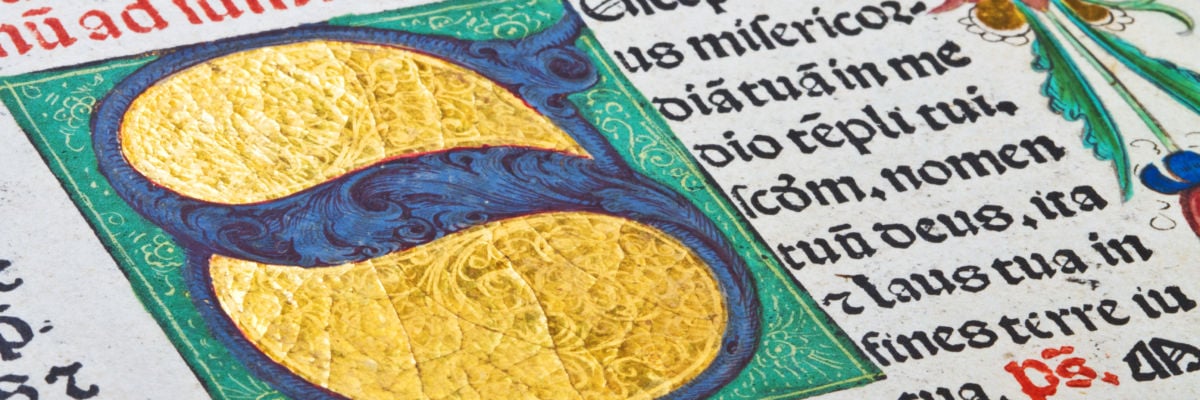
Pope Francis’s motu proprio Traditionis Custodes has been the cause of no small amount of alarm and sorrow in the hearts of many of the faithful. Not only alarm and sorrow but confusion and questions as well. As more than a few bishops have made clear with public statements, thinking and praying over what the Holy Father desires and how practically to bring it about has led to more points of confusion that they will look to the Holy See to clarify. This state is exacerbated by the swiftness—“entering immediately in force”—with which the document’s changes are to be implemented.
No small number of bishops have responded by saying “Status quo ante” until they have time to interpret a document they saw for the first time last Friday. Others have said nothing, doubtless discerning their best course. In effect, they are creating, in the absence of one, an ad hoc vacatio legis—a time for laws to be examined, questioned, clarified, and edited through a cooperative participation of many good minds. Pope Francis points to Pope St. Pius V, who established for the Church a single Roman missal, but the first Dominican pope gave three months (six for dioceses beyond the Alps) for his famous bull to come to complete effect.
The pope’s letter accompanying the motu proprio raises even more questions. He makes use of a narrative that is not complete or at least not completely explained. It is so, for example, that, as Pope Francis writes, Pope Emeritus Benedict XVI, in his negotiations with the Priestly Society of Pope Saint Pius X (SSPX), granted its request to permit any priest who wished to offer the traditional Latin Mass to have the freedom to do so of his own accord and without his bishop’s permission. Nonetheless, Benedict himself, in his “Last Testament” interviews with Peter Seewald, made clear his deeper purpose in issuing Summorum Pontificum and for encouraging two forms of the Roman Rite to flourish. He desired that the Church herself be reconciled with her own liturgical tradition. When Seewald asked him if “the reauthorization of the Tridentine Mass” was “primarily . . . a concession to the Society of St Pius X,” Pope Benedict responded:
That is just absolutely false! It was important for me that the Church is one with herself inwardly, with her own past; that what was previously holy to her is not somehow wrong now. The rite must develop. In that sense reform is appropriate. But the continuity must not be ruptured. The Society of St Pius X is based on the fact that people felt the Church was renouncing itself. That must not be. But as I said, my intentions were not of a tactical nature, they were about the substance of the matter itself. Of course it is also the case that, the moment one sees a Church schism looming, the pope is obliged to do whatever is possible to prevent it happening. This also includes the attempt to lead these people back into unity with the Church, if possible.
With Traditionis Custodes, Pope Francis is pursuing a very different kind of strategy from his predecessor to “lead people back to unity.” He is restricting not only the availability but also the growth of the traditional Latin Mass, making it clear that all “need to return in due time to the Roman Rite promulgated by Saints Paul VI and John Paul II.”
For the Holy Father, one single rite, with one single form, is the solution to discord, and on this score he is explicit. Words in papal documents are chosen carefully, and he has chosen the word unique. Article 1 reads: “The liturgical books promulgated by Saint Paul VI and Saint John Paul II, in conformity with the decrees of Vatican Council II, are the unique expression of the lex orandi of the Roman Rite.” In other words, the only one of its kind. Whereas Pope Benedict declared, “The missal promulgated by Paul VI is the ordinary expression of the lex orandi of the Catholic Church of the Latin rite.” Pope Francis now says it is the only one.
The change gives rise to more questions:
What of other “expressions” of the Roman Rite—the Dominican Rite; the Ambrosian Rite; and, of more recent vintage, the rite used by the priests of the Ordinariate of the Chair of Peter, formerly called the Anglican Use? My staff and I, honored by visiting clergy from the Ordinariate, have been blessed to assist at this rite several times in the Catholic Answers chapel. It is a beautiful, to say nothing of successful, means of bringing our separated Anglican brethren back into the fullness of communion with the Catholic Church.
We have also benefited from Byzantine and Chaldean liturgies. Throw in the Maronite parish right up the hill from our offices that is so popular with a number of the Catholic Answers staff, and we have had an abundant and profitable exposure to the richness and diversity of the Church’s liturgical tradition. Everyone who works here is a faithful Catholic; none would ever “deny the validity and the legitimacy of the liturgical reform, dictated by Vatican Council II and the Magisterium of the supreme pontiffs” (article 3, paragraph 1).
Another question: Is this concern of Pope Francis restricted to the behavior and attitudes of Catholics attached to the traditional Latin Mass? He answers: “I am nonetheless saddened that the instrumental use of Missale Romanum of 1962 is often characterized by a rejection not only of the liturgical reform, but of the Vatican Council II itself, claiming, with unfounded and unsustainable assertions, that it betrayed the Tradition and the ‘true Church.’” The Holy Father’s conclusion here derives from the result of “a questionnaire to the bishops” that the Congregation for the Doctrine of the Faith circulated “regarding the implementation of the motu proprio Summorum Pontificum.”
Manipulated as they are in American politics, for example, I tend to be doubtful of surveys, and I wonder if they are a good point of departure for crafting policy. The nine questions contained in the survey are good ones. Since I have not seen the answers, however, I can speak only from my own not inconsiderable experience with Latin Mass parishes. In the main, I believe, the members thereof would say the following: we find that the rubrics of the traditional Latin Mass are more suffused with theological meaning and more reverent; the language of the traditional Latin Mass sets apart the Holy Sacrifice of the Mass from other ceremonies; my piety, my devotion, my “collectedness,” to use an expression favored by Msgr. Romano Guardini, are reinforced by its beauty, its grandeur, and its mystery. In any case, those are the things I would say.
Insofar as the members of Latin Mass parishes give much thought to the Second Vatican Council, I would expect them to have honest questions about some passages in the conciliar documents. They might even puzzle over some of the assertions contained in them. For example, the opening sentence of Dignitatis Humanae states that “a sense of the dignity of the human person has been impressing itself more and more deeply on the consciousness of contemporary man.” How fully does this square with an age that had witnessed the purges of Hitler, Stalin, and Mao and the dropping of the atomic bomb? Perhaps the Council Fathers meant that in the wake of so much horror, a reaction in favor of the dignity of the human person was underway. If so, it has been short-lived. We witness the murder of forty to fifty million babies a year and now the insistence that our sex is a construct of our imaginations.
I don’t know personally any Catholics who reject Vatican II. I include priests I know in the SSPX and friends who attend Mass in their chapels. These people are eager to see questions, especially of religious liberty and collegiality, clarified and shown to be in continuity with the Church’s teaching tradition. When the Holy Father refers to “comportment that contradicts communion and nurtures the divisive tendency,” I hope he does not mean the asking of questions by those who seem to be looking for continuity in the teaching of the Church.
Another question: Has the pope’s questionnaire given him an accurate picture of the scope and nature of the dissent? I speak often of what I call the outrage industry—the truly unpleasant presence, especially online, of angry, vain, and self-promoting “personalities”—some in Roman collars—who very much do, in the Holy Father’s words, “widen the gaps, reinforce the divergences, and encourage disagreements that injure the Church, block her path, and expose her to the peril of division.” However much these people should be avoided—and they should—I am fearful that the noise they make represents disproportionately their presence in the Church and especially their influence among those who love liturgical tradition.
This raises another question, one of percentages: if the numbers of the dissenting are as small as I suspect they are, might a first and less drastic step of the Holy Father have been to alert his fellow bishops to the problem, encourage them to investigate in their own sees, and address the problem at the local level? “Father,” a bishop could say, “I need some assurances from you that you are not permitting dissent from the Magisterium in your parish. Let’s accompany your flock to bring along to the truth those who are causing scandal with their dissent. I am especially concerned that the peace of your parishioners could be overcome by their anger, thereby imperiling their salvation.”
Let’s stipulate that the problem is much bigger than I know. It is a certainty that the pope knows things I do not. If there are many, however, stirring up dissent in parishes, must all suffer these restrictions on the traditional Latin Mass? After all, God was prepared to spare Sodom for the sake of just ten.
I have more questions, and I hold that questions are a respectful way to give voice to disagreements with the Holy Father, even when he is not typically in the practice of giving answers. In this case, I worry that should the pope choose not to bring clarity to the confusion felt from pew to chancery, he risks upsetting the logic, reason, truth, and authority that are part of the natural order. I accept that he is the pope, indeed the vicar of Christ on earth, and so do the great majority of people who are attached to the traditional form of the liturgy. Filial piety is subject to natural reason, however. Otherwise, our Catholic faith is, as so many non-Catholics charge, nothing more than superstition. If we give them reasons to think as much, we will fail at evangelization. The danger of that failure makes the unity for which the Holy Father calls all the more urgent. Oremus!



